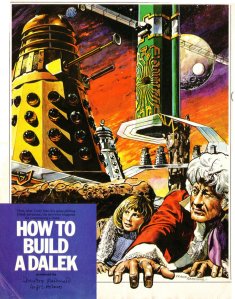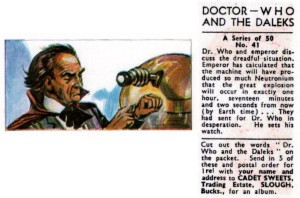Is True Detective plagiarised? There are, as I and others have noted, aspects of the first series pretty much straight from Alan Moore, but now readers of Thomas Ligotti’s work have stepped up to cry foul.
I’ve read The Conspiracy Against the Human Race, and it’s blindingly obvious Nic Pizzolatto has, too. I’d recommend the book, a work of philosophy that reads like Marvin the Paranoid Android wrote it – an alternative title might be Life, Don’t Talk To Me About Life. Do not, in all seriousness, read it if you have or are at risk from depression. The central thesis, echoed by Rust in True Detective, is that consciousness was an an evolutionary accident, one that allows us to understand a fundamental truth unknown to everything else: that the universe is very big and long-lasting and indifferent, and we are none of those things. Ligotti argues that, basically, we have conspired as a species to use various methods to pretend very hard that life and consciousness are good, valuable, special things that we should cherish, when, to lift a line from Douglas Adams, there’s another school of thought that says emerging from the oceans was actually a big a mistake.
On a technical level, the series gives a dozen or so lines to Rust that are fragments of things Ligotti says, or near paraphrases of them. It’s there, but I think there’s more appropriated from Alan Moore – I can’t swear to that, I’ve not rewatched it using a clicker or a chess clock – and there’s also chunks of some of the more trippy Grant Morrison sections. This is part of the joke, if you like, of the series. Rust is seen as being out there, weird, unique … he says himself he just reads books. He’s explictly tapping into a vaguely delinated techno-occult esoteric tradition, one that tries to use the language of modern physics to talk about mystical experiences. Of course he quotes Lovecraft, Moore, Morrison, Nietzsche and Ligotti.
The article I linked to quotes the University of Cambridge’s definition of plagiarism … and there’s the rub. True Detective is not an academic paper, it’s a work of fiction. No, that isn’t some magic wand that means someone can pass off other people’s work as their own. What it means, though, is that Pizzolatto (who has acknowledged Ligotti in interviews) is doing what art does: taking existing things – the serial killer, noir, a Deep South setting, the works of people like Moore and Ligotti and Lovecraft and so on – and transforming what he’s found into something new. He’s not writing philosophy, he’s writing fiction informed by philosophy. Every adventure movie since Star Wars has been informed by the Campbell monomyth, but they’re not ‘plagiarising’.
What might complicate things is that Ligotti is best known as a horror writer. His book isn’t a hardcore work of philosophy so much as an explanation of what the ‘horror’ underlying much horror fiction is, why we’re scared of zombies, pod people and so on (they are ‘like us’ while celebrating the extinction of consciousness). It is a great ‘how to write horror’ book, and I’d recommend it for that – it’s why I bought it, and it’s proved helpful to me. It makes the plagiarism charge more complicated, though. At one level, it means Pizzolatto only did what Ligotti invited his readers to do, which is use art to explore the grand themes discussed in the book. At another level, it means the two writers are engaged in the same kind of writing. Joseph Campbell wrote an essay in 1961 called ‘The Impact of Science on Myth’ that George Lucas read and used as a template when he was writing Star Wars, it’s that essay, rather than the Hero With A Thousand Faces that really spells out what Star Wars is, what it needs to be, and the appeal it would have. Campbell was an academic, not a filmmaker pitching a movie that put his ideas into practice. He was not Lucas’ peer or rival.
True Detective is not plagiarised. The fact that True Detective is ‘very Alan Moore’ is what appealed about it to me. I know a lot of Lovecraft fans loved the show for the same reason. It’s informed by Ligotti’s work, too. Writers absorb their life experience, their reading, the work of their peers and contemporaries, what they read in the news, things about people they meet, they synthesise all that into new work. The whole point of The Conspiracy Against the Human Race is to demonstrate that ‘pessimism’ is a worldview that a strain of artists and philosophers have had in every culture since the dawn of civilisation, and it quotes extensively from those people. As a fan of Moore’s work, I’d invite anyone who liked True Detective to read the graphic novel of From Hell. This, I think, is the healthy response for a Ligotti fan – ‘you liked True Detective … OK, let me show this guy’.



